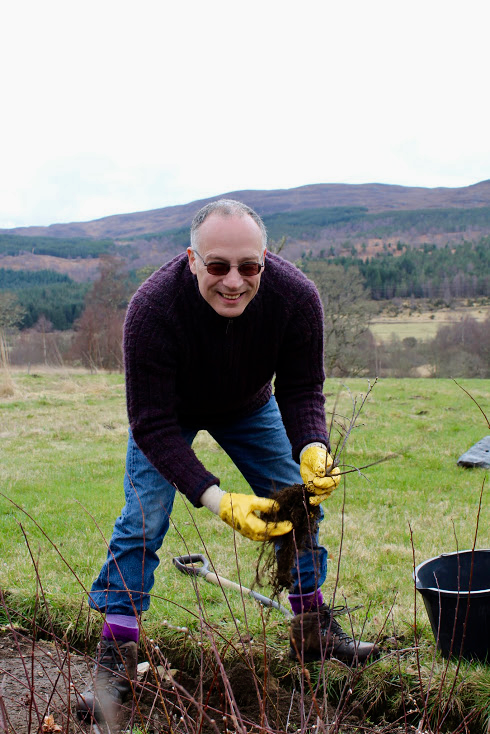Professor Gabriel Waksman, Professor of Structural Molecular Biology, shares how he has set up a charity dedicated to funding carbon mitigation projects that aim to restore native forest habitats.
 Since becoming a scientist, I have had the great joy of globe-trotting all over the world from conferences to review panels, from seminars abroad to lecturing at foreign institutions. Such extensive travelling was useful to promote my research, tell people about our latest discoveries, and exchange ideas with fellow scientists in my field. It also provided me the opportunity to publicise the achievements of the research institute I founded in 2003 and directed until October last year, the joint UCL/Birkbeck Institute of Structural and Molecular Biology.
Since becoming a scientist, I have had the great joy of globe-trotting all over the world from conferences to review panels, from seminars abroad to lecturing at foreign institutions. Such extensive travelling was useful to promote my research, tell people about our latest discoveries, and exchange ideas with fellow scientists in my field. It also provided me the opportunity to publicise the achievements of the research institute I founded in 2003 and directed until October last year, the joint UCL/Birkbeck Institute of Structural and Molecular Biology.
However, I came to realise how dreadful my carbon footprint had become. Like many of us, my awareness of human-made global warming caused by CO2 emissions has increased over the years and recently it passed a threshold where I felt I needed to proactively address this issue. There is no doubt that government intervention is going to be crucial in solving the climate crisis, but I wondered how we, academics, could take individual responsibility for our carbon emissions. We must obviously reduce our travelling: we do travel far too much. But attending conferences and sharing our results prior to publication is an essential lubricant of science: it makes it work more smoothly and more rapidly. I suspect that, in the foreseeable future, academics will continue to travel to conferences.
If conference travel is here to stay (albeit at a reduced rate), what can we do to offset our carbon emissions? There are many ways to do so but I was attracted to the approach of native tree-planting. Trees are excellent carbon fixers and, in my opinion, there is nothing more beautiful than a native woodland. Native afforestation increases biodiversity and restores degraded ecosystems. Also, it was important to me to plant trees in the UK, and not necessarily abroad as many afforestation projects do. Tree-planting sites in the UK are easily verifiable because they are easily accessible. They are also subjected to the Woodland Carbon Code, a set of stringent governmental rules.
I therefore set up a charity called ‘All Things Small and Green’ and a website where academics can compute their carbon emissions, convert them into trees (2-4 trees per metric tonnes of carbon), and add these trees to groves we have set up with Trees For Life, our tree-planting partner. We created a Scientists’ Grove, and Academics’ Grove, even a Friends’ Grove, and finally our first Conference Grove.
I find the idea of a ‘grove’ extremely attractive. Any institutions can create their own grove and ask their members to contribute trees to it to offset their carbon emissions. I hope we can create a ‘Birkbeck Grove’ where everyone at Birkbeck will be able to contribute trees. Birkbeck has made tremendous efforts in reducing its carbon footprint and last week organised its own ‘climate learning week’, that included a vegetarian day and an opportunity for students and staff to bring in their bikes for an appointment with Cycle Republic. But the effort must continue and address the issue of carbon emissions caused by academic travel. In that respect, the latest initiative by Wellcome is important and will spur all institutions on to tackle the issue effectively.
Further Information:
